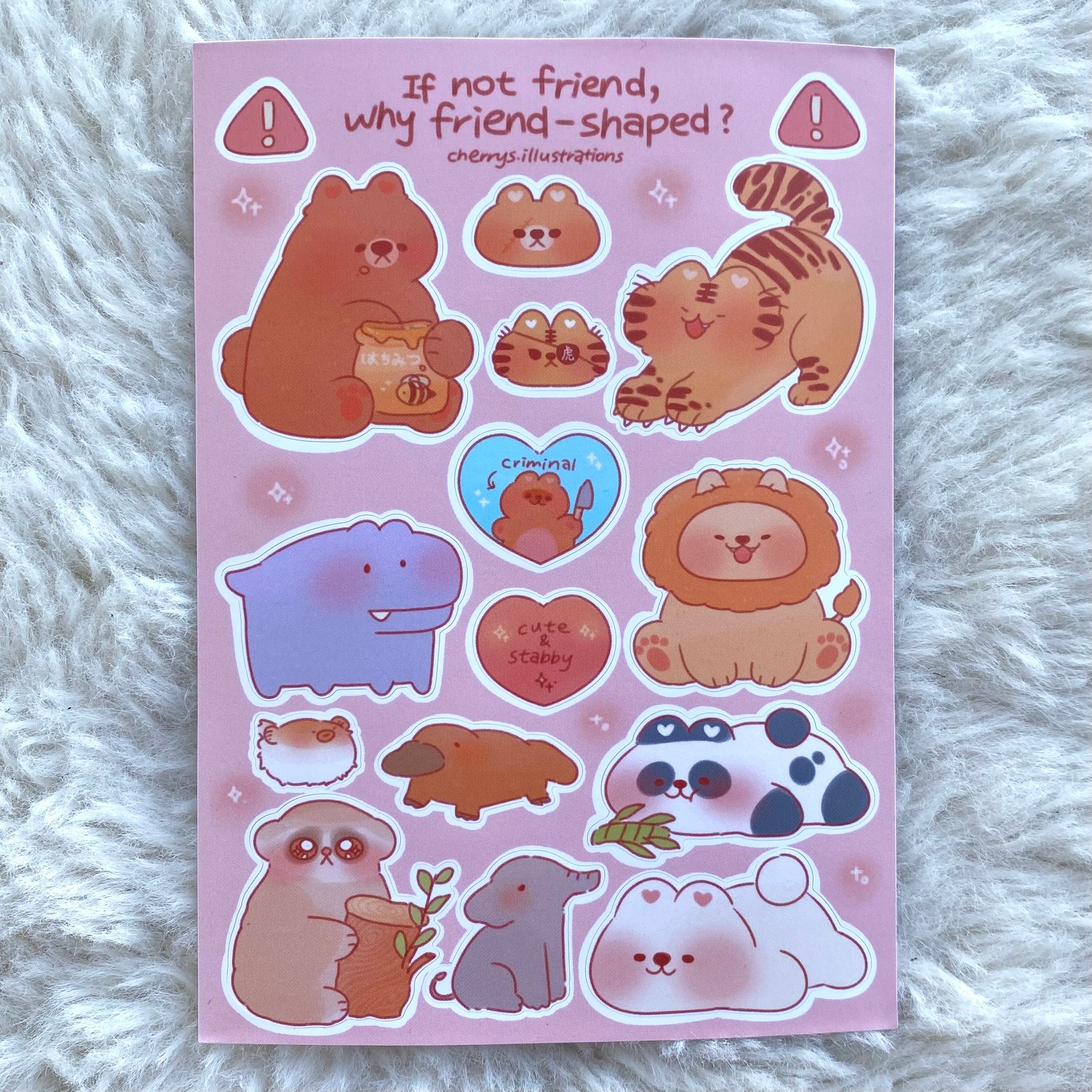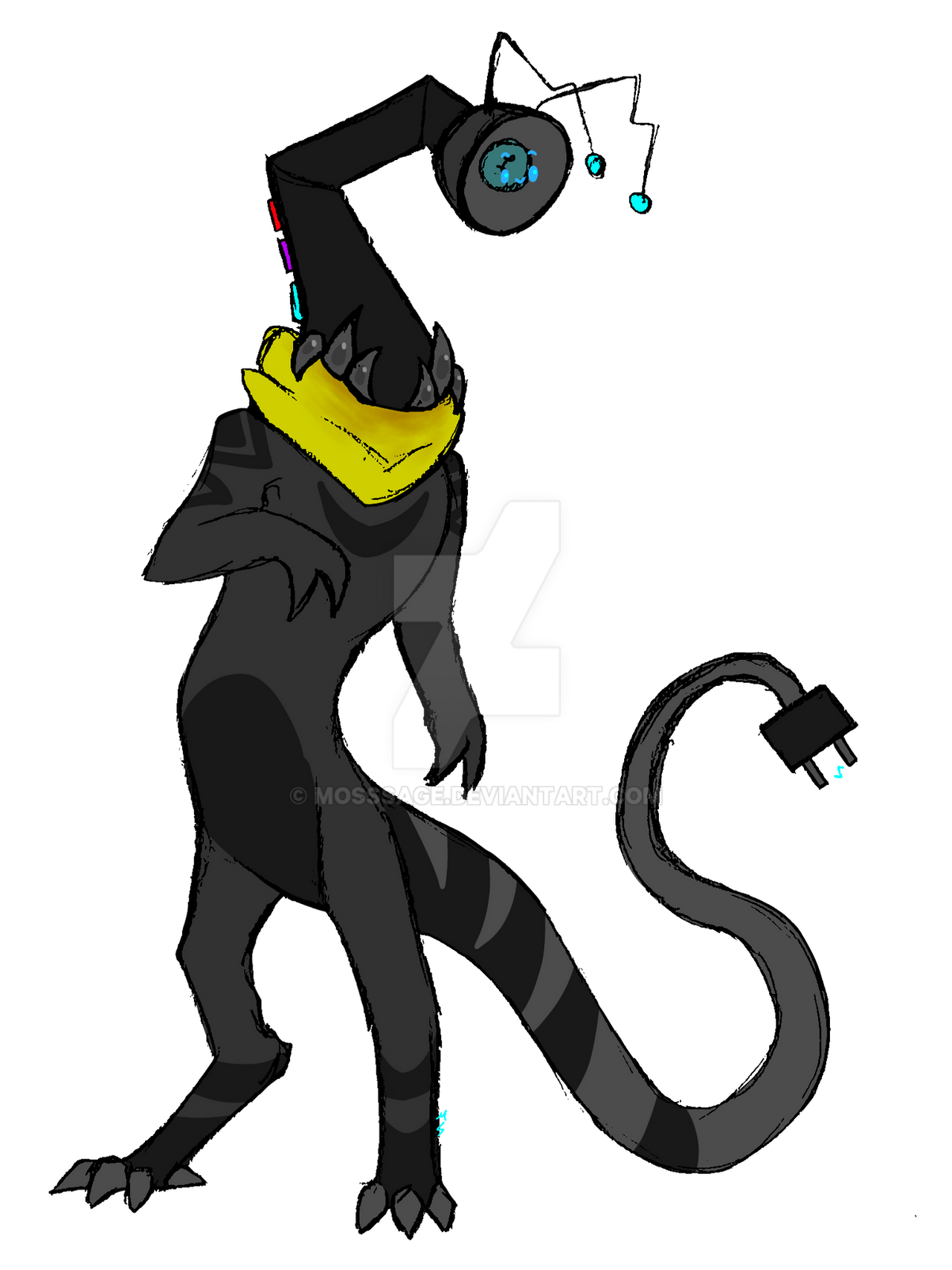The phrase "If Not Friend, Why Friend Shaped" has become a popular expression on social media and internet forums, often used humorously to describe animals, objects, or even people that have a friendly appearance. Despite its seemingly whimsical nature, this phrase encapsulates a deeper meaning and offers a unique lens through which to view relationships and perceptions in modern society. By exploring the origins, implications, and cultural significance of this expression, we can gain a better understanding of its impact on contemporary communication and the ways we perceive friendliness and companionship.
Initially derived from a playful observation about animals—particularly those that are not typically domesticated pets—the phrase "If Not Friend, Why Friend Shaped" suggests that despite an animal's inability to be a traditional companion, its amiable appearance evokes a sense of friendship. This concept has resonated with many, leading to its widespread use across various platforms. The expression serves as a reminder that appearances can be deceiving, and what may seem unfriendly or unapproachable might actually possess qualities that are endearing and relatable. By examining this phrase in detail, we can uncover its broader implications for how we perceive and interact with the world around us.
Delving deeper into the phrase's meaning, it becomes evident that "If Not Friend, Why Friend Shaped" extends beyond its surface-level humor. It challenges us to reconsider our preconceptions about friendship and companionship, prompting us to question whether our judgments are based on superficial characteristics or deeper connections. Furthermore, this phrase highlights the importance of empathy and understanding in our interactions with others. By embracing the idea that appearances can be misleading, we are encouraged to look beyond the surface and appreciate the unique qualities that make each individual or creature a potential friend.
Read also:Insights Into Nenes Financial Success Her Net Worth Explained
Table of Contents
- Origin of the Phrase
- Cultural Significance of "If Not Friend, Why Friend Shaped"
- How Has Social Media Impacted the Spread of This Phrase?
- What Are the Psychological Aspects Behind Its Popularity?
- How Do We Define Friendship?
- Appearance vs. Reality: What Does It Mean?
- How Does Humor Play a Role in Communication?
- What Does This Phrase Say About Our Understanding of Animal Behavior?
- Linguistic Analysis: What Makes This Phrase So Catchy?
- The Impact on Modern Language and Slang
- How Do Memes Influence Phrase Virality?
- What Social Commentary Does This Phrase Offer?
- Exploring the Human-Animal Bond
- What Does the Future Hold for This Phrase?
- Conclusion: The Lasting Impact of "If Not Friend, Why Friend Shaped"
Origin of the Phrase
The phrase "If Not Friend, Why Friend Shaped" originated from internet forums and social media platforms where users often post pictures of animals or objects with a humorous caption. This phrase likely started as a playful observation about animals, particularly those that appear friendly despite not being traditional pets. The expression quickly gained traction due to its relatable and comedic nature, resonating with audiences across the globe.
Cultural Significance of "If Not Friend, Why Friend Shaped"
In today's digital age, the phrase has transcended its comedic roots to become a cultural phenomenon. It represents a shift in how we communicate and perceive relationships, encouraging a more inclusive and empathetic approach to understanding friendship. The expression highlights the importance of looking beyond appearances and recognizing the potential for companionship in unexpected places.
How Has Social Media Impacted the Spread of This Phrase?
Social media has played a pivotal role in the dissemination of the phrase "If Not Friend, Why Friend Shaped." Platforms like Twitter, Instagram, and TikTok have facilitated the rapid spread of this expression, allowing users to share and engage with content that features this phrase. The viral nature of social media has amplified its reach and impact, making it a staple in online communication.
What Are the Psychological Aspects Behind Its Popularity?
The psychological appeal of the phrase lies in its ability to evoke humor and relatability. By challenging our preconceived notions of friendship, the expression encourages a more open-minded and empathetic perspective. This resonates with individuals seeking to foster deeper connections and understanding in their relationships.
How Do We Define Friendship?
Friendship is a complex and multifaceted concept, encompassing various aspects of emotional connection, trust, and mutual support. The phrase "If Not Friend, Why Friend Shaped" challenges traditional definitions of friendship by suggesting that appearances can be misleading and that true companionship may be found in unexpected forms.
Appearance vs. Reality: What Does It Mean?
The phrase highlights the discrepancy between appearance and reality, reminding us that outward characteristics do not always reflect inner qualities. This concept encourages us to look beyond superficial traits and appreciate the unique attributes that make individuals or creatures potential friends.
Read also:The Endearing Love Story Of Alex Edelman And Hannah Einbinder
How Does Humor Play a Role in Communication?
Humor is a powerful tool for communication, as it can break down barriers and foster understanding. The phrase "If Not Friend, Why Friend Shaped" uses humor to challenge preconceived notions and promote empathy, making it an effective and engaging way to convey its message.
What Does This Phrase Say About Our Understanding of Animal Behavior?
The expression invites us to reconsider our perceptions of animal behavior, suggesting that animals perceived as unfriendly or unapproachable may possess qualities that are endearing and relatable. It encourages a deeper understanding of the complexities of animal behavior and challenges us to view animals with greater empathy and appreciation.
Linguistic Analysis: What Makes This Phrase So Catchy?
The phrase's simplicity and playful structure contribute to its catchiness. The use of rhetorical questioning and contrast between "friend" and "friend shaped" creates a memorable and engaging expression, which has contributed to its widespread popularity.
The Impact on Modern Language and Slang
The phrase "If Not Friend, Why Friend Shaped" has influenced modern language and slang by introducing a new way of expressing concepts related to appearance and friendship. It has become a part of contemporary vernacular, illustrating the evolving nature of language in the digital age.
How Do Memes Influence Phrase Virality?
Memes play a significant role in the virality of phrases like "If Not Friend, Why Friend Shaped" by providing a visual and humorous context for the expression. The shareable nature of memes allows for rapid dissemination and engagement, further contributing to the phrase's popularity and cultural impact.
What Social Commentary Does This Phrase Offer?
The phrase serves as a form of social commentary, challenging societal norms and expectations related to friendship and appearance. It encourages a more inclusive and empathetic approach to understanding relationships, highlighting the importance of looking beyond surface-level traits.
Exploring the Human-Animal Bond
The expression underscores the unique bond between humans and animals, emphasizing the potential for friendship and companionship in unexpected forms. It invites us to appreciate the diversity of relationships and the ways in which animals can enrich our lives.
What Does the Future Hold for This Phrase?
The enduring appeal of "If Not Friend, Why Friend Shaped" suggests that it will continue to influence language and communication in the future. As society becomes more interconnected and open-minded, the phrase's message of empathy and understanding will likely remain relevant and impactful.
Conclusion: The Lasting Impact of "If Not Friend, Why Friend Shaped"
The phrase "If Not Friend, Why Friend Shaped" has transcended its humorous origins to become a powerful expression of empathy and understanding. By challenging our perceptions of friendship and appearance, it encourages us to look beyond surface-level traits and appreciate the unique qualities that make each individual or creature a potential friend. In doing so, it promotes a more inclusive and compassionate approach to relationships, ultimately enriching our understanding of the world around us.

